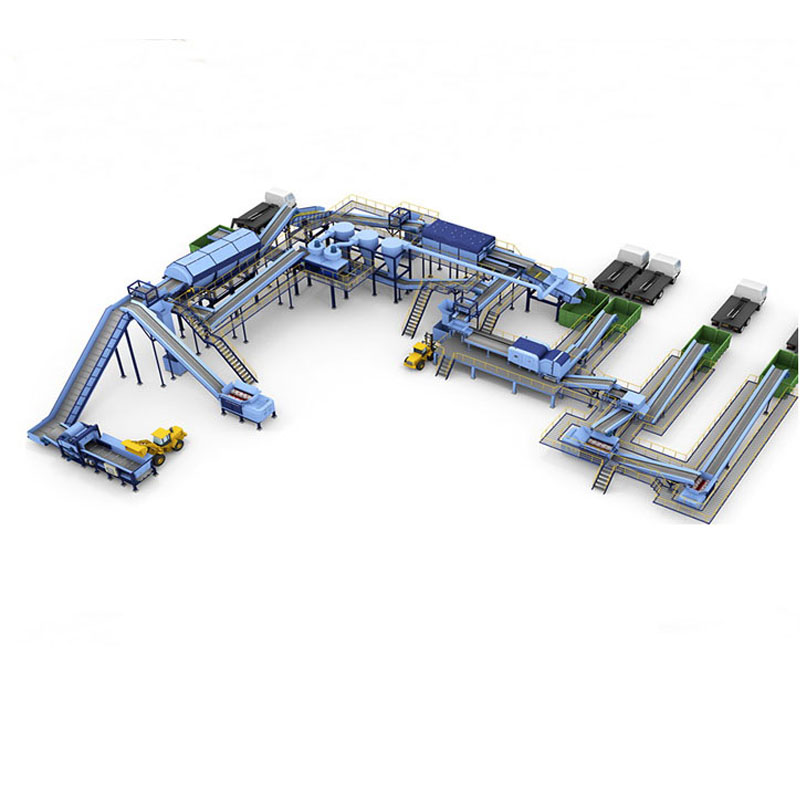

Nov . 10, 2024 04:29 Back to list
The Importance of Steel Recycling Plants
In an era where sustainability and environmental conservation are becoming increasingly paramount, steel recycling plants play a crucial role in promoting a circular economy. The steel industry is one of the largest contributors to global greenhouse gas emissions, and recycling steel is an effective way to mitigate these impacts. By reprocessing old steel, we can significantly reduce energy consumption, conserve natural resources, and minimize waste.
Steel is a highly recyclable material, with studies suggesting that about 80-90% of the steel can be recycled indefinitely without losing its properties. This exceptional quality makes steel recycling a viable option for reducing the need for new steel production, which traditionally involves resource-intensive processes. In fact, recycling steel saves approximately 75% of the energy required to produce new steel from raw materials. This substantial energy savings translate into reduced carbon emissions, supporting global efforts to combat climate change.
A steel recycling plant operates by collecting scrap steel from various sources, including old buildings, vehicles, appliances, and industrial machinery. Once the scrap is gathered, it undergoes a process of segregation, where contaminants and non-steel materials are removed. The next step involves shredding the steel into smaller pieces to facilitate melting. These pieces are then melted in large electric arc furnaces, where temperatures exceed 1,600 degrees Celsius. The molten steel is subsequently refined, allowing for the removal of impurities and the addition of alloying elements to achieve desired specifications.
One of the significant advantages of steel recycling plants is their ability to create jobs and boost local economies. The recycling process requires a skilled workforce for various stages, including collection, sorting, processing, and distribution. Furthermore, the demand for recycled steel has been steadily increasing due to its cost-effectiveness and environmental benefits, making recycling a profitable venture.

Moreover, steel recycling plants contribute to waste reduction by diverting materials from landfills. Steel is one of the most recycled materials globally, yet millions of tons still end up as waste. By enhancing recycling initiatives, these plants help address the urgent issue of solid waste management. Reducing landfill usage not only conserves valuable land resources but also lessens the potential for soil and groundwater contamination.
The positive impacts of steel recycling extend beyond environmental benefits; they also foster technological advancements and innovation within the industry. As demand for recycled steel grows, recycling plants are investing in cutting-edge technologies to improve efficiency and reduce operational costs. Innovations such as advanced sorting technologies, automated processes, and energy-efficient furnaces are contributing to a more sustainable steel recycling sector.
In addition, the global steel market is becoming more conscious of its environmental footprint, with companies increasingly prioritizing sustainability in their operations. Many steel manufacturers are striving to incorporate a higher percentage of recycled materials into their production processes. This trend not only helps reduce the reliance on virgin resources but also enhances the overall sustainability of the steel industry.
In conclusion, steel recycling plants are integral to building a sustainable future. They help minimize energy consumption, reduce greenhouse gas emissions, and contribute to waste management efforts, while also generating economic benefits through job creation and technological advancements. As we continue to navigate the challenges posed by climate change and resource depletion, the role of steel recycling plants will only become more vital. Embracing and promoting the recycling of steel is not just an environmental necessity; it is a pathway towards a more sustainable economy that respects our planet's resources and future. As individuals and businesses, we can all contribute to this process by supporting initiatives that prioritize recycling and sustainable practices. Together, we can create a cleaner, greener future for generations to come.
Latest news
Troubleshooting Common Eddy Separator Problems
NewsJul.04,2025
The Role of Metal Recycling Plants in Circular Economy
NewsJul.04,2025
The Impact of Recycling Line Pickers on Waste Management Costs
NewsJul.04,2025
Safety Features Every Metal Shredder Should Have
NewsJul.04,2025
How Industrial Shredders Improve Waste Management Systems
NewsJul.04,2025
How Cable Granulators Contribute to Sustainable Recycling
NewsJul.04,2025